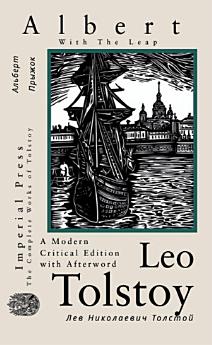Albert with "The Leap"
Acerca de este libro electrónico
"The Leap," known in Russian as "Прыжок," is a short story by Leo Tolstoy, first published in 1880 and included in the collection "Новая азбука" (New ABC Book). This work, sometimes referred to as a "true story" (быль), recounts an incident aboard a ship. The plot centers on a twelve-year-old captain's son who, influenced by the taunts of sailors, climbs the ship's mast in pursuit of a mischievous monkey. This act places him in a precarious situation, forcing him to make a desperate jump into the water.
These two stories center on irreversible acts of desperation and vulnerability—Albert smashing his violin and the boy leaping from the mast—that reveal the characters at their existential limits. Through these climactic acts, Tolstoy explores profound human fragility, survival (physical or spiritual) under duress, and the raw psychological reality of individuals facing annihilation. While The Leap has a simpler plot, both stories exemplify Tolstoy's core strength: deep psychological insight into human behavior under extreme pressure.
This critical reader's edition offers a modern translation of these two unique stories, crafted for contemporary readers, with clean, contemporary language and simplified sentence structures to clarify Tolstoy's complex Russian phrasing and antiquated references. The supplementary material provides autobiographical, historical, and linguistic context. It includes an afterword by the translator on Tolstoy’s personal history, impact, and intellectual legacy; an index of the philosophical concepts he employs, emphasizing existentialism and Schopenhauer's influence; a comprehensive chronological list of his published writings; and a detailed timeline of his life, highlighting the personal relationships that shaped his philosophy.











